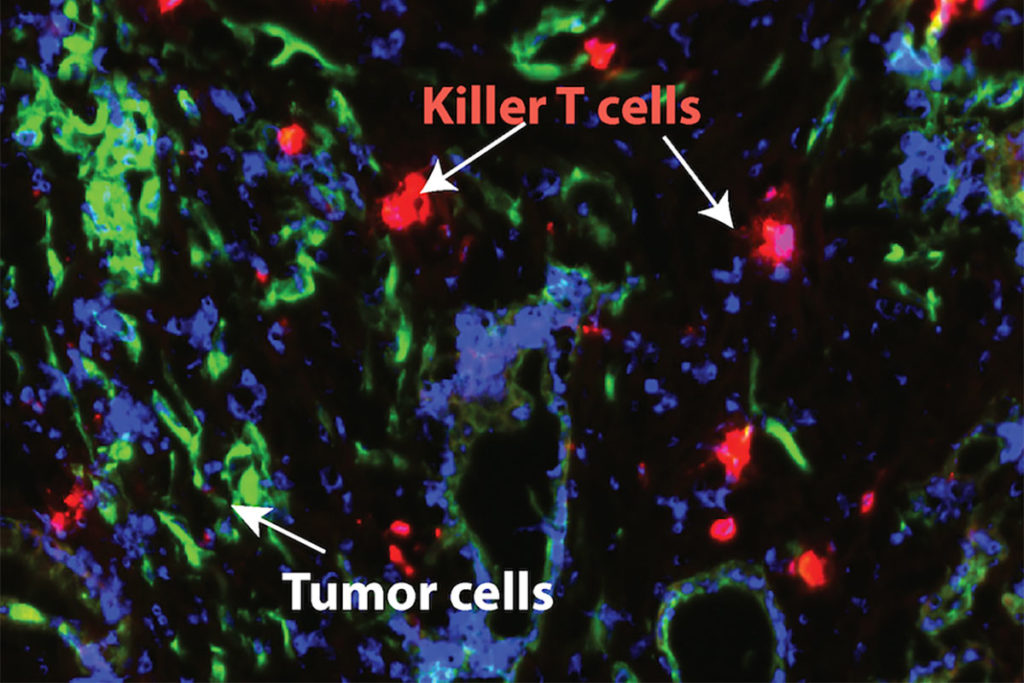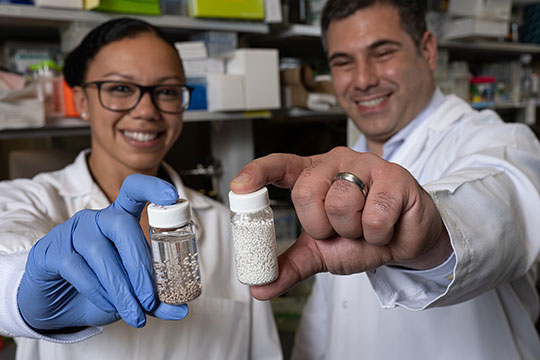
Washington University to lead national clinical trial investigating therapy. A new study – in mice – suggests that blocking a major inflammatory pathway that is activated in pancreatic cancer makes the tumors sensitive to chemotherapy and a type of immunotherapy that prompts the immune system’s T cells to attack the cancer cells. The therapy more than doubled survival in a mouse model of pancreatic cancer.
Pancreatic cancer is one of the most...
Read More








Recent Comments